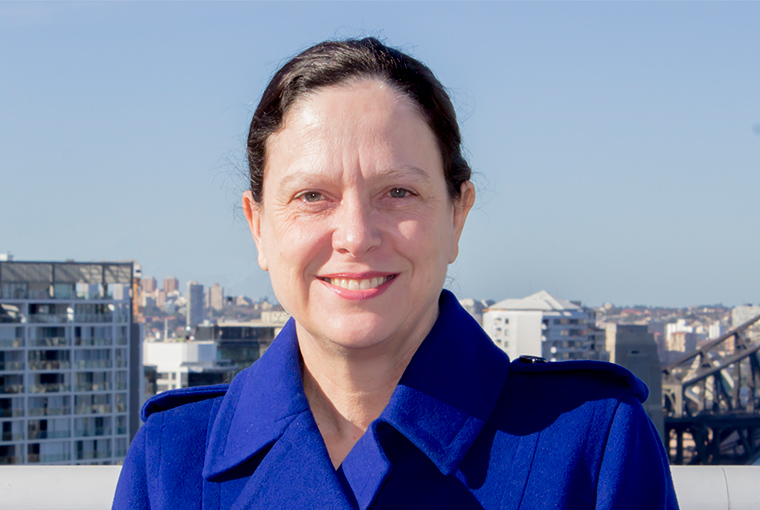News
Teenagers often silent carriers of meningococcal disease, expert says
People aged 14–19 will receive a free meningococcal vaccination from April next year under a new Federal Government school-based program.
 Carriage rates of meningococcal are said to peak at about 19 years of age and be particularly high in places where there is a close mixing of young people.
Carriage rates of meningococcal are said to peak at about 19 years of age and be particularly high in places where there is a close mixing of young people.
Teenagers are more likely to be a carrier of meningococcal disease and a targeted free vaccination program could help protect others from the deadly disease, according to an expert.
Dr Vicky Sheppeard, Director of the NSW Communicable Diseases Branch, told newsGP that infants and those aged 15–24 are the most affected by meningococcal disease.
‘About 10% of people will carry the bug in the back of their throat, and to most people that causes no harm. But, occasionally, it gets spread and it invades from the throat into the body,’ Dr Sheppeard said.
‘The carriage rates peak at about 19 years of age and are particularly high in young people who are in residential colleges, military barracks, all those kinds of places where there is a close mixing of young people.
‘About 20% of 19-year-olds are carrying the meningococcal bug in the back of their throat, compared to younger and older age groups, where it is perhaps as low as 5%.’
Meningococcal disease is an uncommon but very serious infection that occurs when the meningococcal bacteria invades the body from the throat or nose. It usually appears as meningitis or sepsis.
The Federal Government earlier this week announced $52 million in funding to deliver free meningococcal vaccine to teenagers through a school-based program as part of the National Immunisation Program.
The free program will target teens between aged 14–16 and will kick off in April 2019.
More than one million teenagers are set to receive the free meningococcal A, C, W and Y vaccine over the next four years. Adolescents aged 15–19 who have not already received the vaccine in school will be able to receive the vaccine through the ongoing GP-based catch-up program.
Federal Health Minister Greg Hunt said the decision follows a recommendation from the Pharmaceutical Benefits Advisory Committee (PBAC) to list the meningococcal A, C, W and Y vaccine for adolescents.
‘In recent years we have seen a rise in the number of invasive meningococcal disease cases in Australia. In 2017, there were 382 cases reported nationally, compared with 252 cases in 2016 and 182 cases in 2015,’ Minister Hunt said.
‘Deaths associated with meningococcal disease have also risen, with 28 deaths in 2017, compared with 11 deaths in 2016 and 12 deaths in 2015.’
 Dr Vicky Sheppeard, Director of the NSW Communicable Diseases Branch, says about 20% of 19-year-olds are carrying the meningococcal bug in the back of their throat.
Dr Vicky Sheppeard, Director of the NSW Communicable Diseases Branch, says about 20% of 19-year-olds are carrying the meningococcal bug in the back of their throat.
According to Meningococcal Australia, the disease is an acute bacterial infection that can cause death within hours if not recognised and treated in time.
Dr Sheppeard said vaccinating teenagers has two benefits.
‘You get direct benefit from vaccinating the teenagers so that they get protection in this highest risk period of their life,’ she said.
‘But also they are the ones who are possibly spreading it to other age groups because of their extensive social mixing. So by vaccinating teenagers we are also providing, we hope, reduction in overall disease in the community.’
Dr Sheppeard said GPs can help by assuring parents the vaccine is effective and safe, and that spring is the peak time of the year for meningococcal disease.
‘[GPs] should enquire routinely of young people or check on the Australian Immunisation Register whether their patient has received the vaccine at school and, if not, they should opportunistically offer catch-up vaccination when young people present,’ she said.
‘GPs should also be familiar with the symptoms and signs of meningococcal disease, remembering that while the highest rates are in infants, young adults and older teenagers, it affects the whole age spectrum.
‘They should be aware of sudden onset of fever and signs such as a severe headache, photophobia, muscle aches and, in infants, abnormal cry and going off their feed.’
meningococcal disease NSW health vaccination
newsGP weekly poll
Health practitioners found guilty of sexual misconduct will soon have the finding permanently recorded on their public register record. Do you support this change?